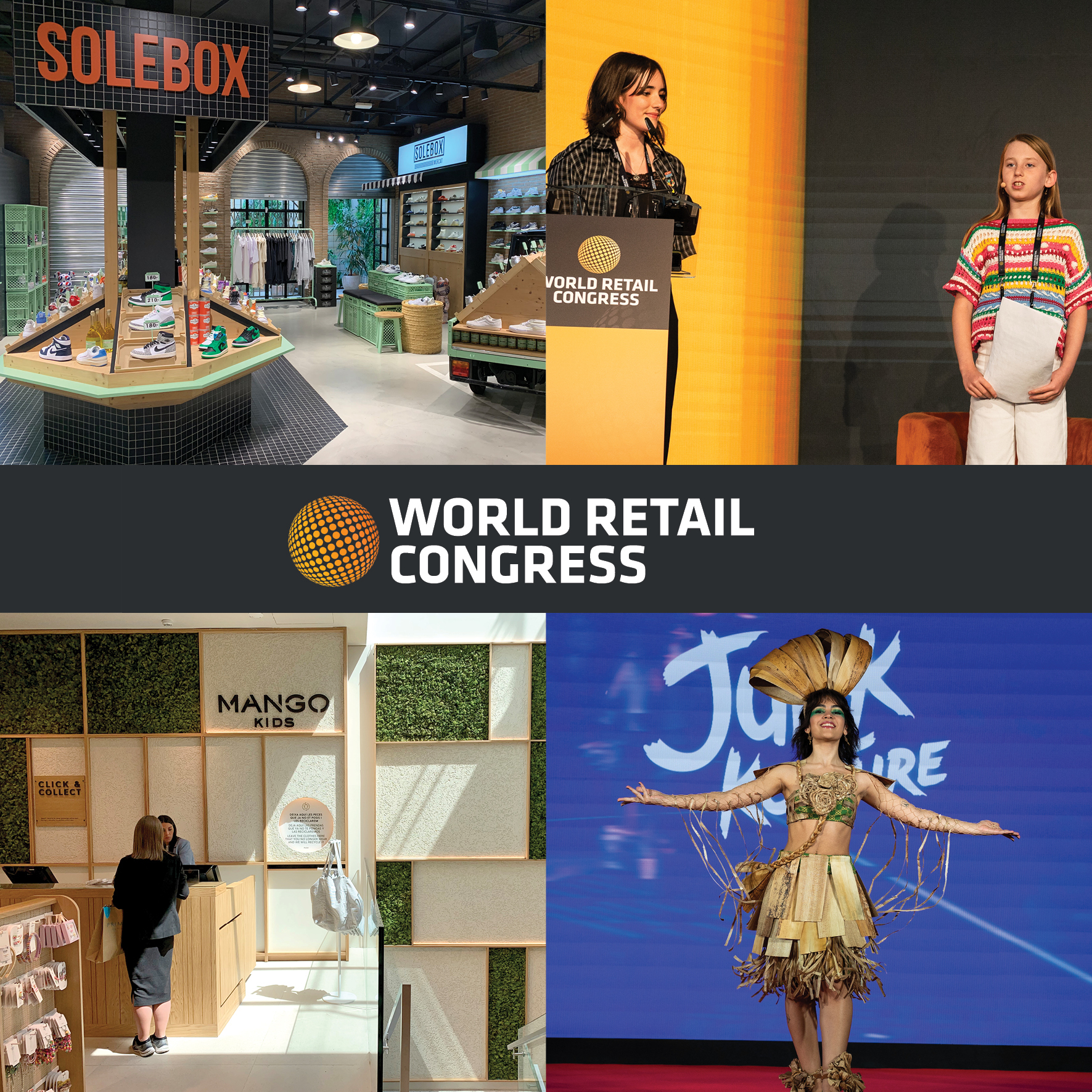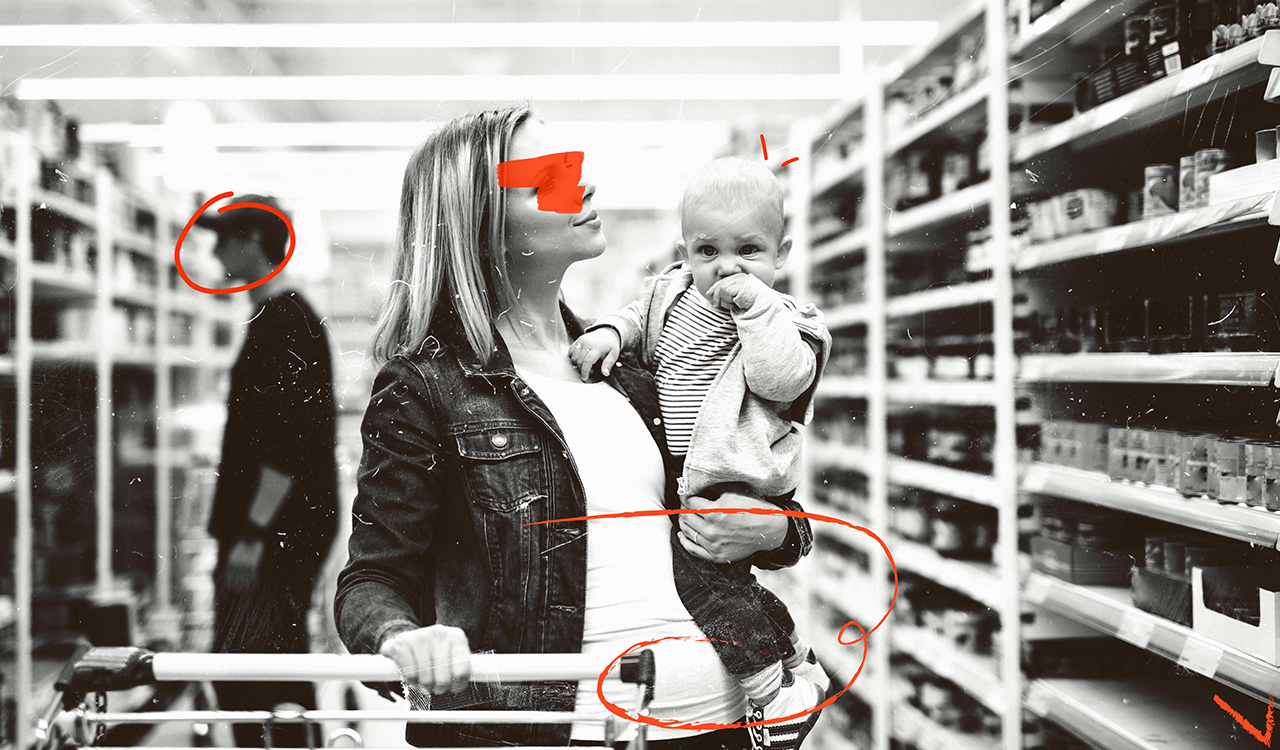Attending the World Retail Congress this year in Barcelona can be a heady experience, not the least of which is recognizing that retailers anywhere in the world have the same problems and the multinationals have even greater challenges serving so many different cultural and social norms. The overall vibe at WRC was upbeat among the 750 attendees representing 40 countries. It’s a clubby atmosphere with a congenial group of high-level retailers circulating with high-level consultants, high-level entrepreneurs, and high-level financiers.
If you want a glimmer of what it takes to run brands including Shein, Ikea, Mango, Marks & Spencer, Action, American Eagle, Wumart, LVMH, John Lewis, Matahari, The Body Shop, Albertson’s, Ocado, Allbirds, Majid Al Futtaim Retail, The Bluebell Group, Spar and Primark, you’d be in the right place. And mingling with these global commerce leaders for two and a half days is a useful way to experience them as more-or-less-regular people.
Aside from the CEO presentations, there were some other interesting moments and surprises at WRC and in Barcelona. And that’s what we’re going to focus on.
The Power of Partnerships
Shell Oil Company is installing more electric chargers than gas pumps in the race to electrify mobility, with the goal of 500,000 charge points owned or operated by the company by 2025. But there’s more to that story. They are diving into retail to build out stores and services for customers who have to wait out the charging time. We’ve written about this, and Shell is accelerating a new retail landscape, anticipating 70% of all cars sold by 2030 as EV. To put it into perspective, six million hybrid EVs were sold in China in 2022. What’s interesting about Shell is that they are actively looking for partnerships with retailers to create commerce centers that appeal to a wider range of customers. Instead of building another wheel, Shell wants to work with others to make one great wheel.
It was the next gens that provided emotional quotient balance to the seasoned CEOs and retail narratives on the main stage at WRC. Their visceral hope and optimism in the face of a world plagued with adult-triggered market disruptions, war, climate crisis, and systemic racial and gender bias are inspirational.
Which brings me to the point: Partnerships are the most logical, efficient, and effective way to solve problems. Why does one brand think they need to solve all the environmental impact problems of their business when they could create a consortium of retailers who share best practices? This is not about associations. This is about C-level retailers working with other peer companies to move solutions along a fast track. Think of it as a Better Business Council. International retailers seem to be more open to this than their competitive American counterparts who are insecure about sharing strategies, which is a missed opportunity. Collective problem-solving and the spirit of collaboration go a long way in getting it right.
Consider the problems of packaging, refrigeration, and transportation, which are massive in the grocery industry. This is a serious issue that needs to be addressed, particularly in meeting international sustainability goals. Suzanne Long, Chief Sustainability and Transformation Officer at Albertson’s advocates this collaborative approach for the grocery industry. At WRC, she reminded us that retailers are no longer in control of their reputations. “All it takes is one picture on social to redefine who you are.” She adds that customers want to know where their food comes from, and employees want to work for a company with purpose and values. Protecting – saving — the planet isn’t a competitive race. It’s the one operational strategy that all business leaders share and should share with peers. For grocery, think of it as an uber Food Chain. In any case, the rest of the world is way ahead of us on partnerships and we’d be well served to catch up.
Hyper Local
Outside on the streets of Barcelona, retail appears to be thriving. Fighting the throngs on Pg. de Gràcia (Barcelona’s Champs-Élysées) would suggest there are no recession, inflation, or anxiety issues about spending money. The major brands line the boulevard, and you could just as well be on line to enter the stores in Chicago, Paris, or on Fifth Avenue than in Southern Spain. The majors are totally consistent in brand strategy, appearance, and service no matter where they are located.
But we were on the hunt for something different, more original. And we found it at Solebox. Tucked away in the Gothic quarter in its maze of narrow streets, we found a poster child for hyper localization. Solebox is based in Germany, with stores in selected European cities (Brussels, Amsterdam, Berlin, Vienna, Munich). The unlock is that each store reflects and celebrates its local host city. In Barcelona’s case, the store is sited close to the epic (and sensorily exhausting ) Mercado de La Boqueria. The clever Solebox interior design strategy serves up Air Jordans, Adidas, New Balance, Nike and other coveted sneaker brands in displays designed as high-end wooden produce counters. They have private-label wine and olives, and plenty of market accessories (milk cartons, vending machines with drinking gear, aluminum sliding gates, meat scales) to reinforce the theme. There are also playful Jeff Koons-esque Bearbrick artworks safely lining the walls (unlike the Miami gallery where a customer accidentally knocked a $42,000 Koons balloon dog off its pedestal onto the floor, shattering it). Solebox is a refreshing, brightly lit environment with a high cool/edgy factor that implores its mainly male customers to buy more collectible sneakers.
Gen Z and the Alpha
Back at WRC, Amy Meek, the exceedingly impressive 19-year-old co-founder (with her sister Ella) of UK-based Kids Against Plastic, made a presentation that was as intelligent as it was compelling. Yes, everyone is on the sustainability bandwagon, but when a Gen Z tells you what it’s like for her to have only seven years in her short life to make the 2030 EU climate goals, it sobers you right up. The kids in her organization have rescued 100,000 single-use plastic bottles worldwide to get them out of landfills. Her mission is to raise awareness of the negative effects of petroleum plastic on the environment and empower others to take action to combat it. She has pioneered 1300 school programs, educational programs for people of all ages and has mobilized nearly 300 kids through an international network. It’s exciting to see such a competent, accomplished young woman articulately pleading with the retail community to speed it up on reducing packaging and waste. But when one of her members, a nine-year-old girl, Ali Waters who lives in Seville, Spain, stood up on stage presenting a 10-minute environmental advocacy talk that she had memorized, and tells you her goal is to pick up 10 million pieces of plastic by time she’s 11, you know you are experiencing a moment in time. She received a three-minute standing ovation from the adults in the audience.
Cultural Relevance
Action is the Netherlands-based fastest-growing non-food discounter in Europe, with 15 million customers and 2250 stores. CEO Hajir Hajii is living the Dutch dream, having started at Action as a 17-year-old store employee and rising to the top position in 2022. The workforce management story is admirable considering there are 80,000 employees in 11 countries. What is surprising, at least to an American educated in Paris decades ago, Action recently won “Favorite Retailer in France” as it celebrated its 10th anniversary in that country. The fact that the effete, provincial French have ranked an outsider as their favorite truly signifies that cultural norms have shifted. Globalization is still alive and kicking in the EU discount world.
Nature’s Own
Store décor and design in Barcelona got the sustainability memo. Plenty of blonde wood and super-green plants provide an implicit eco-message. On that point, Toni Ruiz, CEO of Barcelona-based Mango, shared a design mandate for new store design coined Med (that’s Mediterranean for the rest of us) as a reflection of the influence of Mediterranean culture and lifestyle by integrating sustainability and architecture. So, when exploring the independent shops in Barcelona, that design theme was almost ubiquitous. One of the better examples of natural design is found at the beautiful, sophisticated Compartir restaurant with its oversized ivory, dried flower chandeliers, and bleached driftwood as wall art. There is something quintessentially refined to pause from shopping with a superb meal in a high concept. nature-inspired calming interior.
Mango’s flagship stores back on pg. de Gràcia were great examples of this natural aesthetic implemented at scale. The Kid’s store has horizontal hedges on the walls creating a green checkerboard of oversized tiles and the main store had plenty of natural materials on the perimeter of its expansive space. Maybe the subtle sustainable messaging in store design will make a dent in the consciousness of young customers furiously stocking up on fast fashion. And Mango is impressive in its long view. It has an accelerator program in collaboration with the IESE Business School to support fashion startups, entrepreneurs. and emerging designers. In Ruiz’s words, “The accelerator will allow Mango to discover the startup ecosystem firsthand, establish contact with the key players in the sector and evaluate the trends and disruptive new technologies, in order to develop real-life cases with the start-ups, either because of the high value they can offer or their potential future.”
Junk Kouture
WRC plays on all levels. To reinforce sustainability as a key pillar in retail resilience, the opening reception at a La Llotja (originally a 14th-century building) showcased the ingenuity of next gens and young designers who created fantastic (as in fantasy) performance art clothing made of recycled materials. A mash-up of Nick Cave and the unbridled imagination of 20-somethings from all over the world, each designer modeled his and her own creations with great attitude. Ireland-based Junk Kouture describes itself as a way to “offer schools and students a creative way to become involved in active climate change initiatives, empowering them to lasting behavioral change.” They stage fashion competitions where next gens create and model fashion they craft from recycled items, culminating in the World Sustainable Designer of the Year. Junk Kouture advocates education, gender equality, reduced inequalities, sustainable cities and communities, and responsible consumption with an ambitious 10-year sustainability policy.
Final Thought
It was the next gens that provided emotional quotient balance to the seasoned CEOs and retail narratives on the main stage. Their visceral hope and optimism in the face of a world plagued with adult-triggered market disruptions, war, climate crisis, and systemic racial and gender bias are inspirational. They are the future leaders in our industry and the WRC cohort was clever and passionate. Hats off to Ian McGarrigle and his team for sharing the next gen’s worldview, hopes, and dreams with a group of successful veteran retail leaders who are in a position to make change happen and make a difference that has an impact across borders and among global stakeholders.
Maybe Scott Galloway, professor of marketing at the New York University Stern School of Business and self-described wildly successful entrepreneur, provided the ultimate insight in his keynote. He described how much of his career has been spent looking ahead, predicting the future based on the mistakes of the past. He asked himself, and us, whether he was ever really “here.” Did he have a present? He made the case for appreciating and valuing the moment, which is ultimately all we really have. Gratitude, he said, is missing on our fractious global landscape and it’s time to appreciate and be grateful while we are putting guardrails on (or closing) TikTok and runaway social media to protect the lives of our children. These kids will be leading the world into the future, assuming they survive intact, and he is seriously worried about the negative outcomes of social media.
Hearing the stories of business leaders from around the globe is a great way to get out of your comfort zone, see the world through a different lens, and apply insights from the outside in to better serve the ultimate arbiter: your customers. WRC is a forum that does just that.




